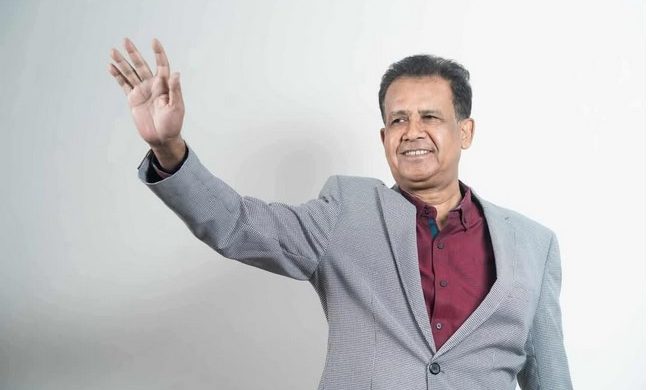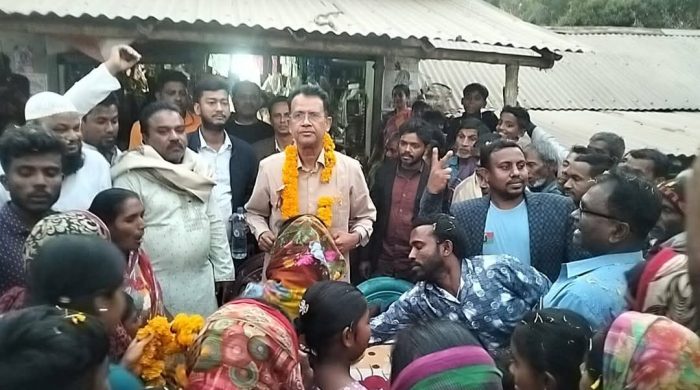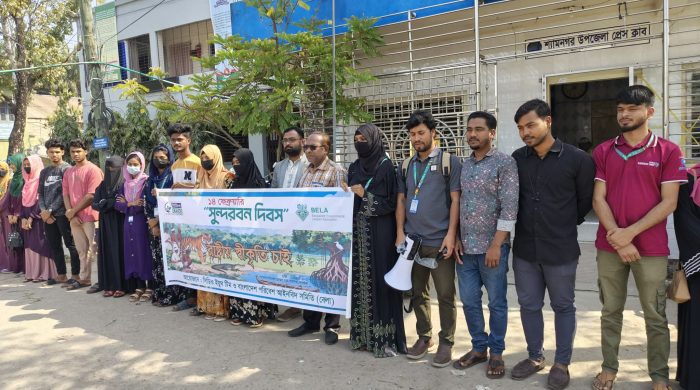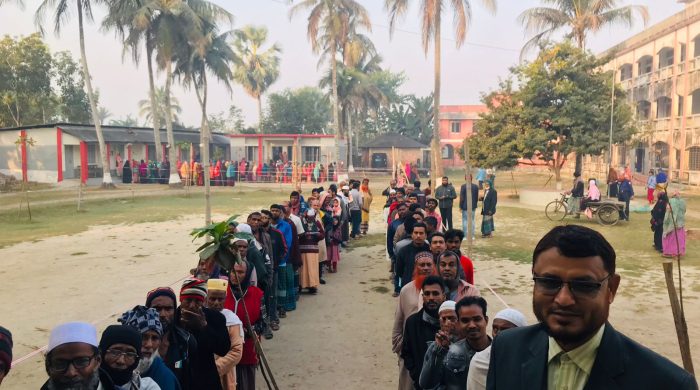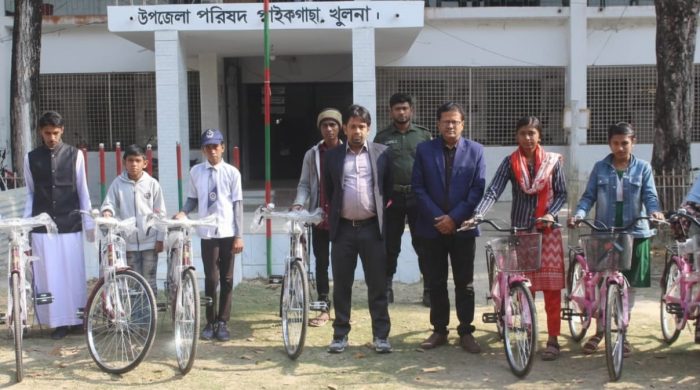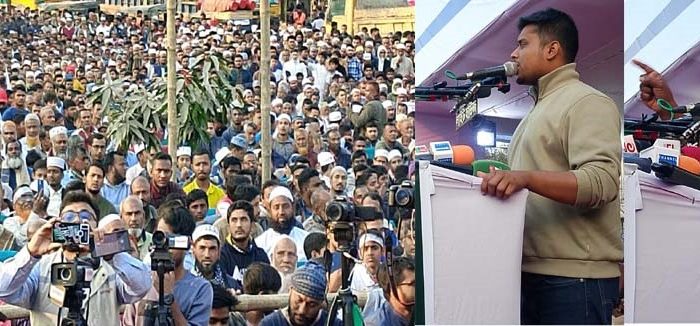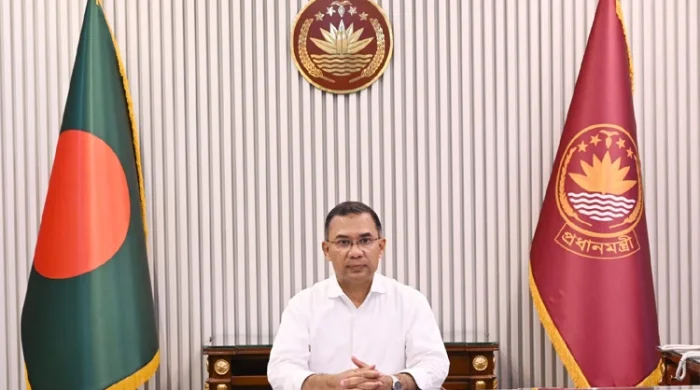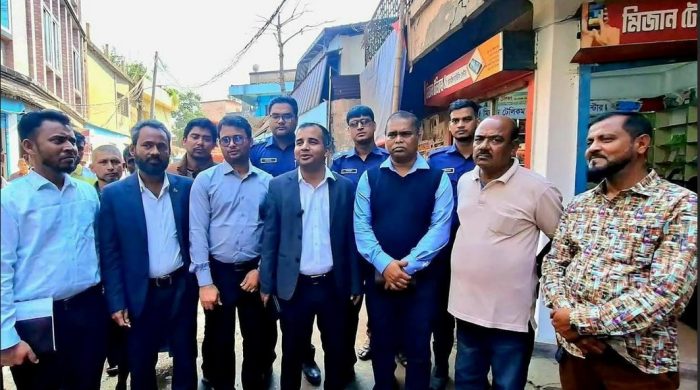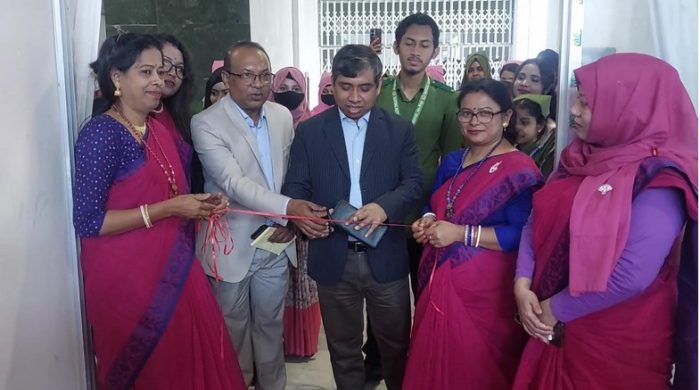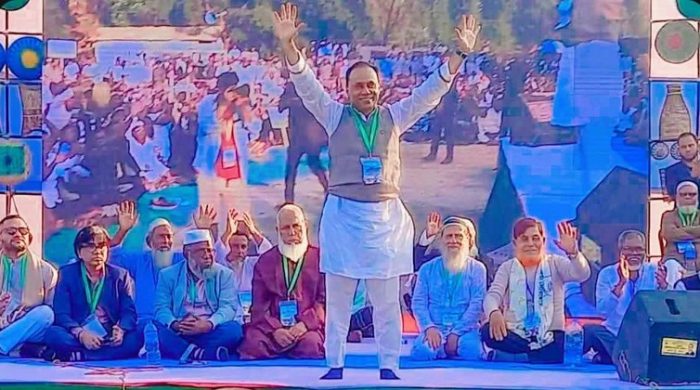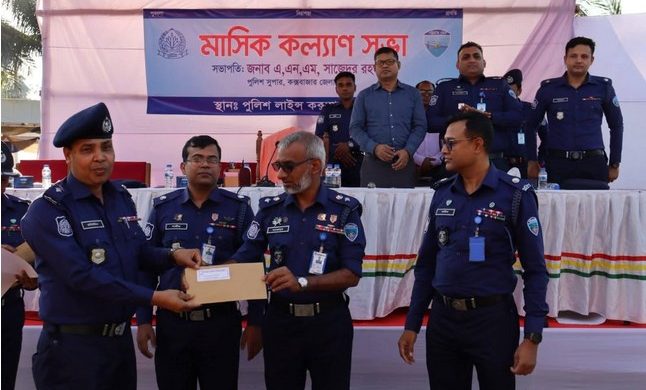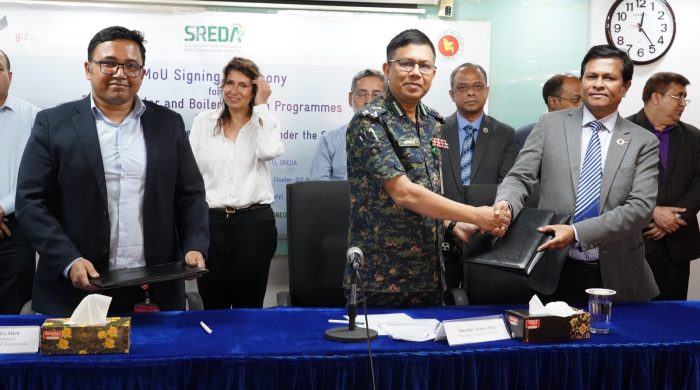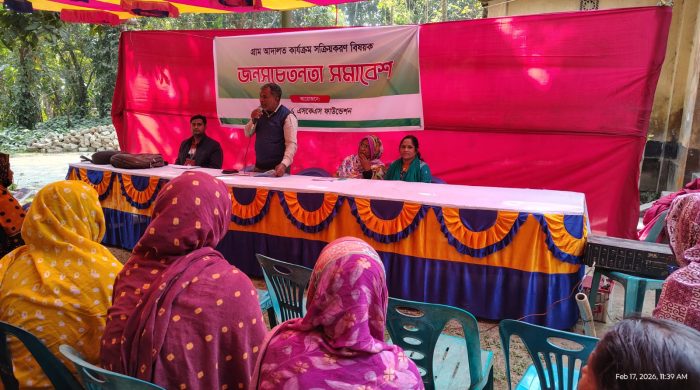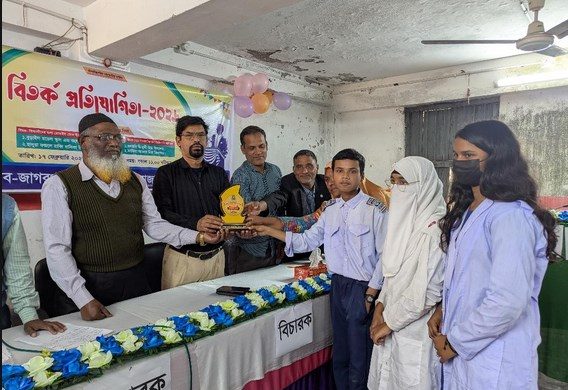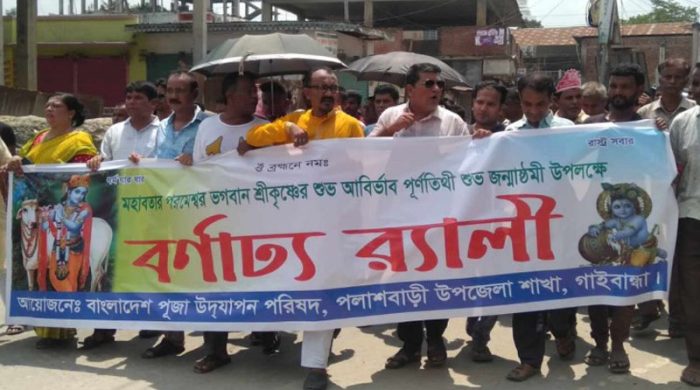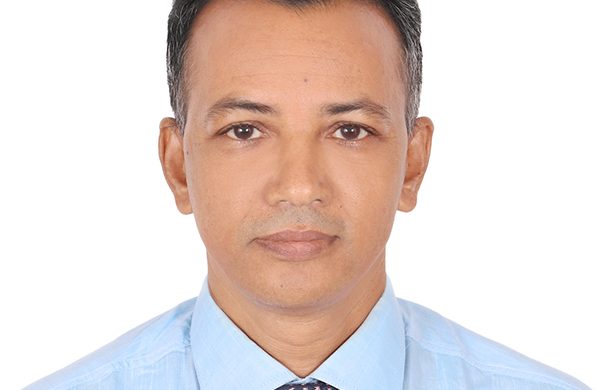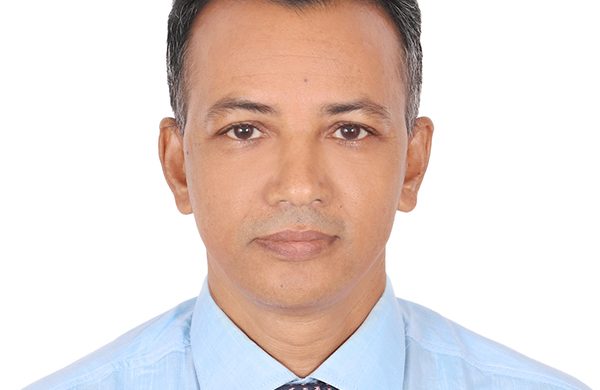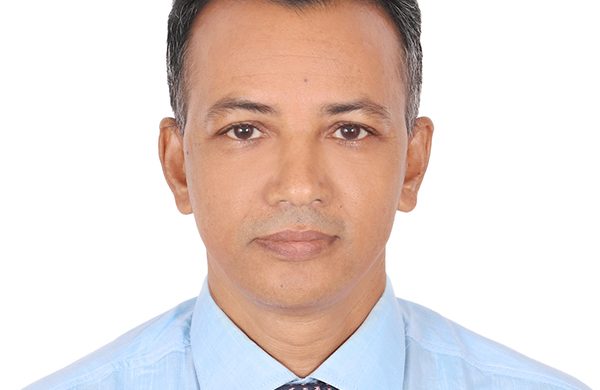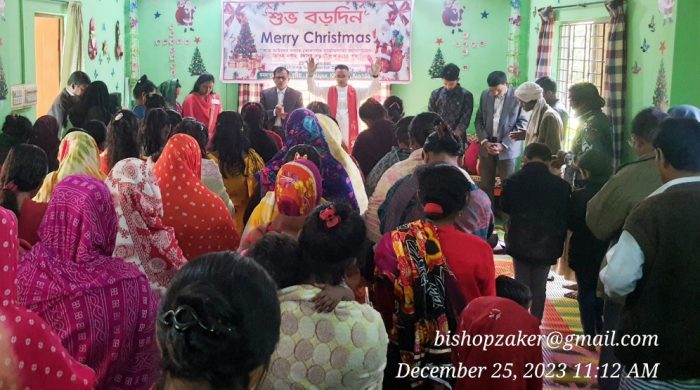Extreme shortage of drinking water in Paikgachha Municipality
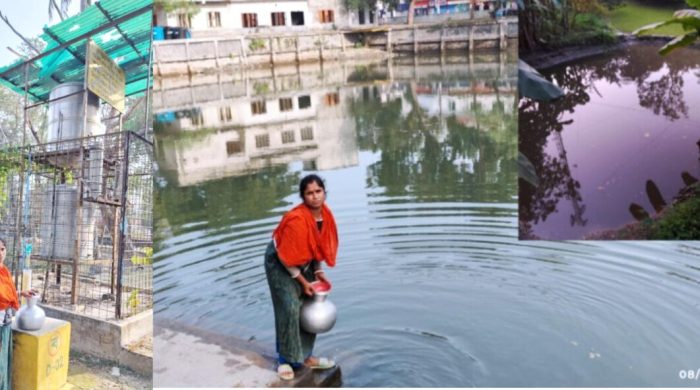
Paikgachha is a coastal town in southern Khulna province, which is dominated by salt water. There is a severe shortage of potable water in this area. The people of the area purify and supply water by preserving small and large ponds and lakes. Paikgachha Municipality is no exception.
Examinations have shown that the municipality is not suitable for installing deep tube wells. There is also a lack of large ponds for storing water.
Due to the extreme shortage of potable water for a long time, the local people are facing endless suffering due to lack of water. Due to the inability to ensure water supply, many residents are forced to drink moss-filled, foul-smelling water from ponds.
Not only the residents of the municipality but also men and women from Karulia village, Smarankhali, Matham, and Almatala of the neighboring Laskar Union come to collect water from Block B under the water project at the Madhumoti Park in Sarjamin. They stand in line for hours, some in pitchers and some in pots, collecting water.
It’s dusty there now. It’s deserted.
When we spoke to Chanchala Rani, Aarti and Najma Akhtar, who came from Ward No. 9, about one and a half kilometers away, they said, “We regularly get water from here.”
There has been no water for a few days. I am forced to collect water from the pond. While collecting water in drums from the pond of the upazila’s Lona Pani Kendra, van driver Sushant Mondal said, “The water provided by the municipality is not drinkable.”
I supply water from here to many people in Shibbati, Saral and Batikhali villages, which are about 3/4 km away.
And the municipality provides water today but not tomorrow. Ashraful Islam, Imam of the Upazila Model Mosque, said that recently the water supply has been irregular.
I heard that the municipality is struggling to provide water due to the water shortage. But you can’t go a day without water.
Various such complaints are heard, including Rupali, Akhtar’s mother, and Basanti Rani, who came to fetch water from the pond of the Department of Livestock; Shefali, Archana Rani, who brought water from the shaded pond of the telephone exchange; Nazar Ali, Rozina, and Amenara, who brought water from the pond of the Upazila Parishad.
Everyone is forced to drink water from moss-filled, foul-smelling ponds, feeling extremely helpless.
Meanwhile, it is known that to resolve the water crisis, the municipal authorities initially started supplying water to 6 out of 9 wards through the municipal water branch in 2014.
That same year, Saral collected water from three pump houses on the banks of the pond, treated it, and supplied it to the customers. At that time, the number of customers was only 250.
Currently, the number of houses is over 5,000. Amidst such a huge demand, the municipal authorities have been supplying potable water to only 1,200 customers through pipelines in the morning and afternoon. And due to the water crisis, the residents of wards 1, 2 and 3 of Bandikati and Gopalpur are the most neglected.
The authorities have admitted responsibility for not being able to provide water to those three wards due to the water crisis. Recently, the municipality has been forced to provide much less water than the people’s needs.
They are providing water once every afternoon instead of twice. Sometimes they provide water every other day.
When various questions were raised, including about the quality of the water, Municipal Water Supply Branch Bill Clerk Md. Shahinur Hossain told The Daily Morning Glory that water is tested every six months from KUET Khulna to see if the quality of the water is good.
In order to provide quality water to the consumers, the municipality has been supplying water from a borehole drilled in Maniktala, a neighboring union of Gadaipur, in 2018.
But as the number of customers increases day by day, it becomes difficult to supply water through a pump house. If a pump breaks down, it takes a minimum of 7 days to repair it.
Due to which the municipality purchased a piece of land at Gadaipur intersection. Since there was a pond, it was filled in and a house for a concrete pump house was built there with the municipality’s funding.
Since there were no electricity lines, the electricity office purchased two current poles and built them by depositing nearly a million taka.
The work of purchasing and installing three of our own transmitters has been completed. The electricity connection has also been completed. The work of installing 4″ class pipes from Maniktala to Gadaipur land has also been completed by the contractor. It is now important to complete the boring work to provide good water to the people.
Otherwise, it will not be possible to supply water to the municipality in any way. Now, 50% of the houses in the municipality have water lines.
Despite customer demand, water is not being provided. Moreover, new water line connections have been suspended for almost a year.
Expressing concern over families collecting drinking water from unhygienic, foul-smelling ponds, Upazila Health and Family Planning Officer Dr. Mahbubur Rahman said, “If this continues, the spread of water-borne diseases including hepatitis A, cholera, typhoid, dysentery, diarrhea, and allergies may increase. This will put the local people at risk of health.”
In this regard, Municipal Administrator and Upazila Executive Officer Mahera Nazneen said, “You know that this area is dominated by salt water. There is water all around. But there is no pure drinking water.”
The current number of water consumers in the municipality has increased several times.
Work on a pump house is underway in Gadaipur to overcome this crisis as the water supply is much less than the demand.
If implemented quickly with everyone’s cooperation, there will be no shortage of clean water for the people of the municipality and surrounding areas.
The residents of the municipality have sought the intervention of the relevant higher authorities to quickly resolve the crisis of clean drinking water.




